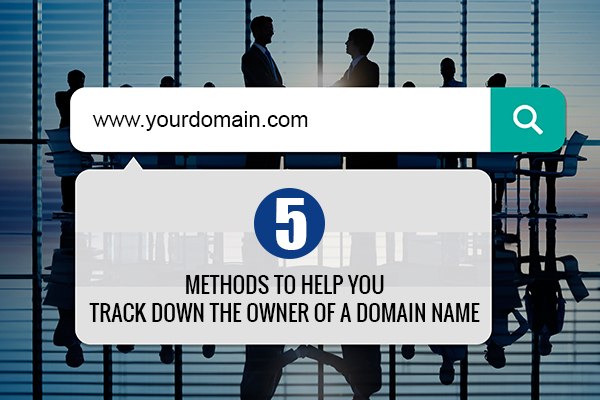Following the implementation of the General Data Protection Regulation (GDPR) by the European Union in May 2018, it is essential for those who buy or own domain names to be aware of the issues surrounding the law’s protection of EU citizens’ personal data. Under this law, online identifiers, including IP addresses, fall under the scope of personal data that is protected. Full information about the EU’s new privacy regulations is found here: https://eugdpr.org/.
For those now seeking to buy domain names, here is a list of 5 ways domain owners may be tracked, depending on certain variables, and some of the problems associated with tracking since the enforcement of GDPR:
- Check the WHOIS database, but with some scepticism. The WHOIS site is a source for secure domain name searches, registration and availability. However, since the implementation of the GDPR law, the companies that sell the rights to use specific domain names may be limiting the information they provide about domain name registrations. And since the GDPR law protects only the privacy of EU citizens, domain name registrars may not sift through all domain name registrations to determine if they are connected to Europe.
- Take a look on LinkedIn. By extracting a registrant’s organization name, state and country from WHOIS, it may be possible to find more information on LinkedIn. Every company page on that site has a link to view its list of employees. There you may be able to determine the appropriate person to contact to find out about the domain owner.
- Try a reverse domain name check. There are sites that provide you with IP addresses and the names of other sites that are using those addresses, and there are sites that can give you additional information, all based on a domain name.
- Take a step back and look at archived websites. There is a website that shows information on any site that has been posted on the domain name in the past. But note that the information about the content owner may be outdated, so this may not always be reliable information.
- Take legal action. This may be costly and take time, but it is one way to find out if the domain registrant is legitimate. You will need to have evidence to show to attorneys in order to prove why you need the information. This is something of a last-resort option.
Going forward, it is not going to be easy to be a domain checker, as a result of the new privacy restrictions under GDPR. If you are in the market to buy or sell domain names, make sure you connect with a trusted source for this type of business. Domain Brothers in the Cayman Islands is one place for purchasing premium domain names to give your business instant visibility and profitability. The company also has expertise in website design and development, web hosting and maintenance, marketing, and mobile app development, among other services.

